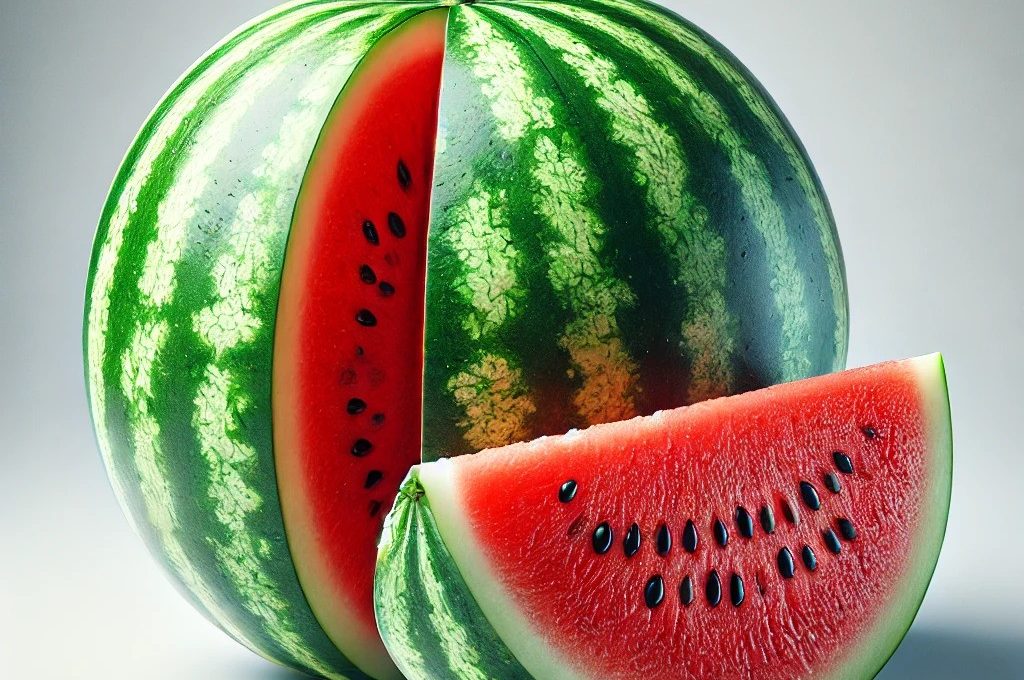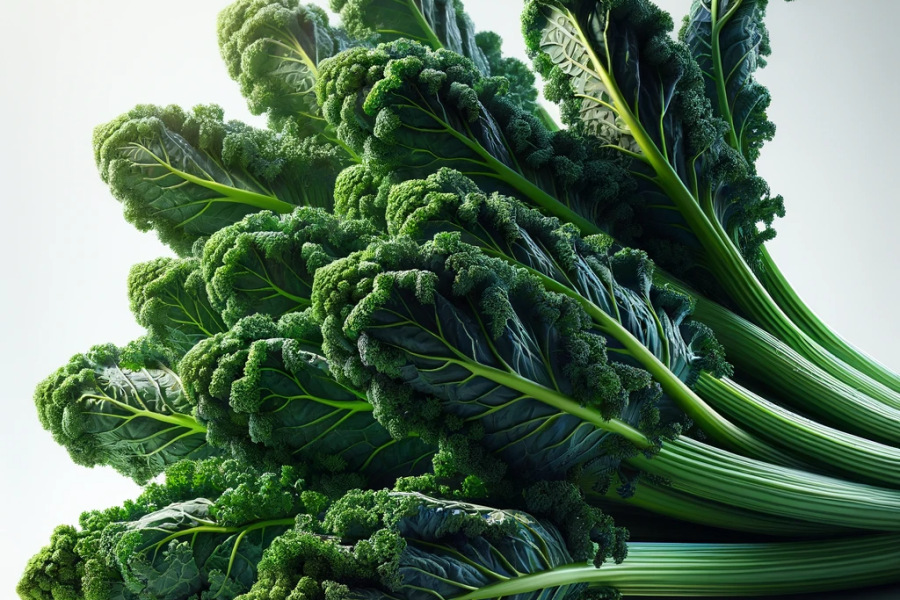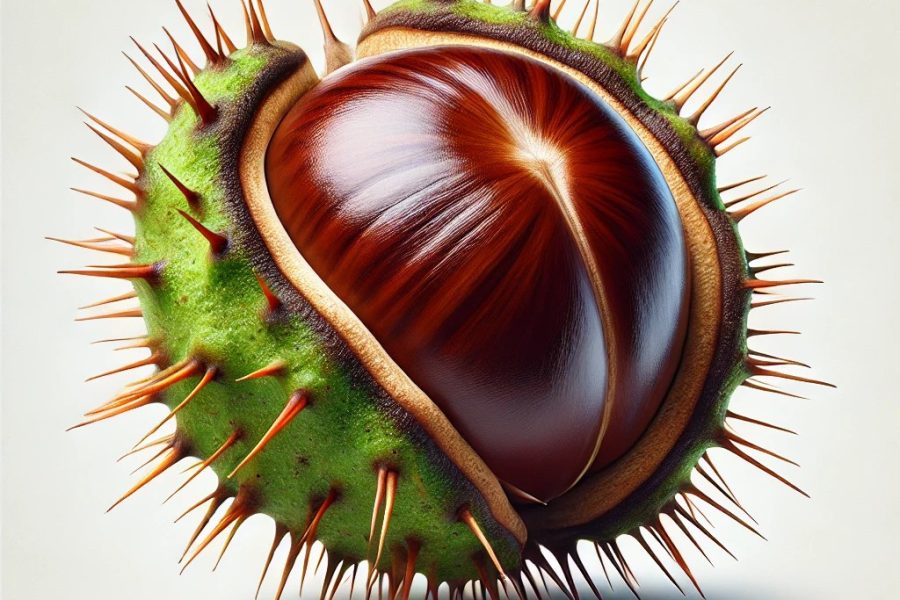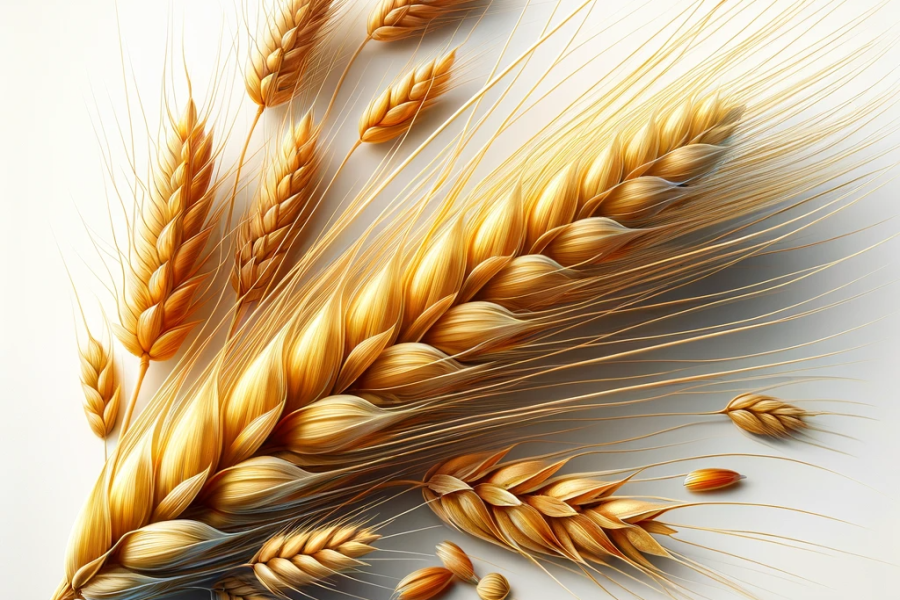Ah, watermelon. The ultimate summer fling: juicy, sweet, and gone too soon. This vibrant fruit is more than just a thirst quencher at picnics. It’s like nature’s candy, packed with surprising health benefits that make it a nutritional overachiever in the fruit world. Let’s dive into the melon madness with some fun facts, nutritional deets, and a breakdown that’ll make you see watermelon in a whole new light!
8 Fun Facts About Watermelon
- Ancient Origins: Watermelons are believed to have originated in the Kalahari Desert of Africa over 5,000 years ago.
- Space Traveler: Watermelon was the first fruit to be enjoyed by astronauts on a NASA space mission.
- All Edible: Every part of the watermelon is edible, including the rind and seeds, which are often discarded.
- Citrulline Central: It’s one of the richest sources of citrulline, an amino acid that may improve exercise performance.
- World Record: The heaviest watermelon ever recorded weighed a whopping 350.5 pounds!
- Colorful Varieties: While typically red inside, watermelons can also have pink, orange, yellow, or even white flesh.
- Hydration Hero: Watermelon is 92% water, making it perfect for staying hydrated on hot days.
- Cultural Symbol: In China and Japan, watermelon is often given as a gift to host families during summer visits.
Nutritional Content of Watermelon (280g Serving)
| Nutrient | Amount per 280g Serving | % RDA |
|---|---|---|
| Calories | 84 | – |
| Water Content | 92% | – |
| Protein | 1.68g | – |
| Carbohydrates | 21.28g | – |
| Sugars | 17.36g | – |
| Fiber | 1.12g | – |
| Fat | 0.56g | – |
| Vitamin C | 22.68mg | 38% |
| Vitamin A | 1593 IU | 32% |
| Potassium | 313.6mg | 9% |
| Magnesium | 28mg | 7% |
| Vitamin B6 | 0.126mg | 7% |
| Thiamine (B1) | 0.092mg | 8% |
| Riboflavin (B2) | 0.059mg | 5% |
| Niacin (B3) | 0.498mg | 3% |
| Folate | 8.4µg | 2% |
| Lycopene | 12,690 µg | Significant |
| Citrulline | – | Beneficial for heart health and exercise performance |
Indulge in the hydrating goodness of watermelon with a 280g serving that’s 92% water and only 84 calories. This juicy delight isn’t just a refreshing treat; it’s a nutrient powerhouse! Packed with 38% of your daily Vitamin C and 32% of your daily Vitamin A, it boosts your immune system and keeps your skin and eyes healthy. With 12,690 µg of lycopene, it fights off free radicals and supports heart health alongside citrulline, which enhances blood flow and exercise performance. Plus, it delivers a good dose of potassium and magnesium to keep your muscles happy. Enjoy the sweetness and savor the benefits!
Antioxidant Content in Watermelon
Here’s a table detailing the antioxidant content in watermelon, their benefits, and ranking from high to moderate based on content.
| Antioxidant | Amount per 280g Serving | Description | Benefit | Content Rank |
|---|---|---|---|---|
| Lycopene | 12,690 µg | A red pigment found in watermelons and tomatoes. | Potent antioxidant that helps reduce inflammation and may lower the risk of certain cancers and heart disease. | High |
| Vitamin C | 22.68 mg | A water-soluble vitamin and powerful antioxidant. | Protects cells from damage, boosts immune function, and improves skin health. | High |
| Beta-carotene | 1692 µg | A precursor to vitamin A and a powerful antioxidant. | Promotes good vision, skin health, and immune function. | High |
| Cucurbitacin E | Not specified | A plant compound with antioxidant and anti-inflammatory properties. | May have anti-cancer effects and support overall health. | Moderate |
| Lutein & Zeaxanthin | Not specified | Carotenoids that are important for eye health. | Protect eyes from harmful light waves and reduce the risk of macular degeneration. | Moderate |
| Vitamin A | 1593 IU | Fat-soluble vitamin and antioxidant. | Essential for vision, immune function, and skin health. | High |
Watermelon is particularly rich in lycopene and vitamin C, both of which are powerful antioxidants. Lycopene is renowned for its potential to reduce the risk of certain cancers and heart disease, while vitamin C is crucial for immune function and skin health. Beta-carotene, a precursor to vitamin A, further enhances vision and immune function. Additionally, compounds like cucurbitacin E, though present in moderate amounts, contribute to its antioxidant profile with potential anti-cancer benefits. Lutein and zeaxanthin support eye health, making watermelon not only a refreshing treat but also a powerhouse of antioxidants that promote overall well-being.
Watermelons and Citrulline: Nature’s Power Duo
Watermelon isn’t just a juicy summer treat; it’s also packed with citrulline, an amino acid with remarkable health benefits. Found primarily in the rind but also in the flesh, citrulline is a standout for its ability to boost heart health and enhance athletic performance.
Heart Health Hero: Citrulline helps to improve blood flow by relaxing blood vessels, which can lower blood pressure and improve cardiovascular function. This makes watermelon a delicious way to support a healthy heart.
Exercise Enhancer: For athletes and fitness enthusiasts, citrulline is a game-changer. It reduces muscle fatigue and improves endurance, allowing for better performance and quicker recovery.
Natural Energy Booster: Citrulline’s role in the urea cycle helps remove ammonia from the body, reducing muscle soreness and providing a natural energy boost.
Don’t Skip the Rind: Most people discard the white part of the watermelon, but this often-overlooked section is where citrulline is most concentrated. Eating the rind, either raw in salads or pickled, can maximize your intake of this beneficial amino acid.
Next time you enjoy a slice of watermelon, remember you’re not just quenching your thirst – you’re also giving your body a potent dose of citrulline. So, don’t be shy about munching on the rind for an extra health boost, making watermelon a perfect snack for heart health and fitness alike!
Watermelon Seeds: Small But Mighty
Don’t toss or dread those watermelon seeds! A handful of dried watermelon seeds packs a punch with high protein content, healthy fats, and essential minerals like magnesium, iron, and zinc. They’re also loaded with amino acids and antioxidants, making them a tiny powerhouse of nutrition. Just one ounce of these seeds provides nearly 10 grams of protein and a whopping 35% of your daily magnesium needs.
Summary
Watermelon is low in calories and high in hydration, making it an ideal snack for hot days. It’s rich in vitamins A and C, which are crucial for immune function, skin health, and eye health. Lycopene, a powerful antioxidant found in abundance in watermelon, helps protect against certain types of cancer and supports heart health. With its delicious taste and impressive nutritional profile, watermelon is a star in the fruit world.
So, next time you munch on a slice of this juicy goodness, remember you’re not just indulging in a tasty treat – you’re also giving your body a hydrating, nutrient-packed boost!



